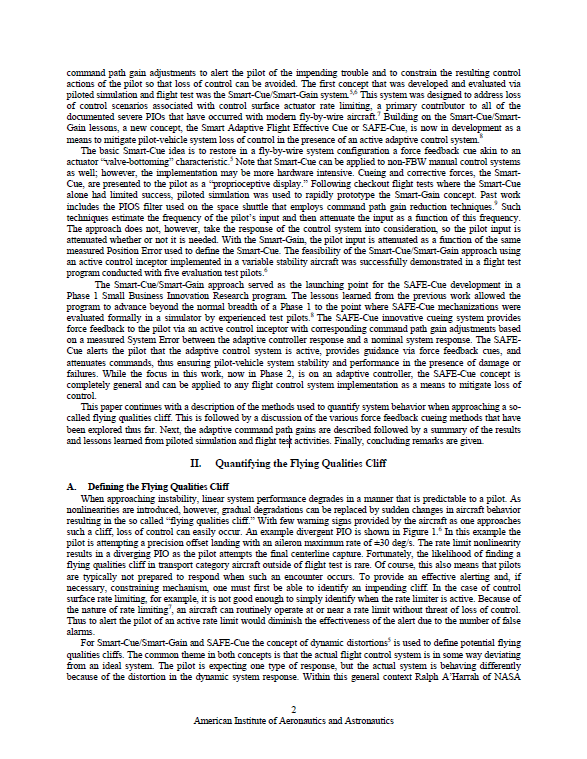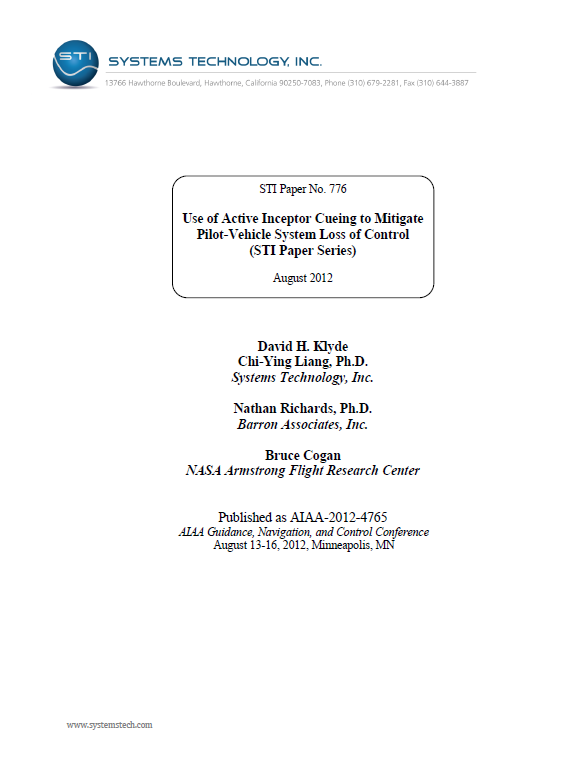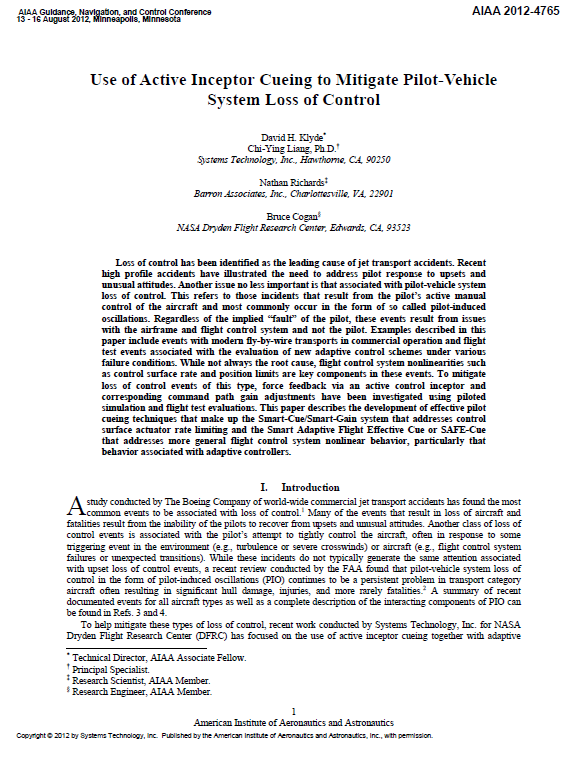
Use of Active Inceptor Cueing to Mitigate Pilot-Vehicle System Loss of Control (STI Paper Series)
Loss of control has been identified as the leading cause of jet transport accidents. Recent high profile accidents have illustrated the need to address pilot response to upsets and unusual attitudes. Another issue no less important is that associated with pilot-vehicle system loss of control. This refers to those incidents that result from the pilot’s active manual control of the aircraft and most commonly occur in the form of so called pilot-induced oscillations. Regardless of the implied “fault” of the pilot, these events result from issues with the airframe and flight control system and not the pilot. Examples described in this paper include events with modern fly-by-wire transports in commercial operation and flight test events associated with the evaluation of new adaptive control schemes under various failure conditions. While not always the root cause, flight control system nonlinearities such as control surface rate and position limits are key components in these events. To mitigate loss of control events of this type, force feedback via an active control inceptor and corresponding command path gain adjustments have been investigated using piloted simulation and flight test evaluations.
Download Now

